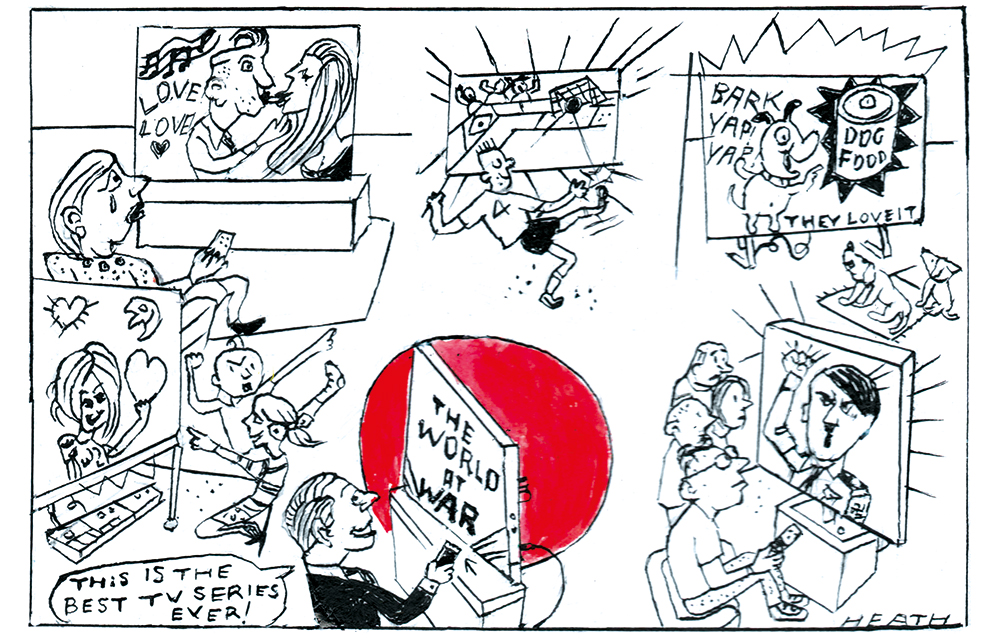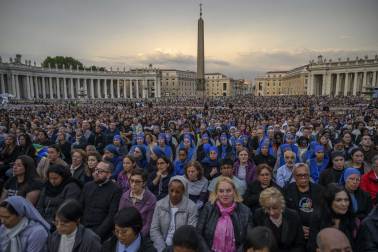To present a TV history documentary these days, one must first have access to the full Angels and Bermans dressing-up box – everything from britches to bonnets. The past must be experienced as pantalooned immersion: throw in some CGI cavalry charges or naval battles, plus artfully dressed period locations, back-alley washing-lines fluttering with greying rags, and you are just about ready to go. This is not necessarily to complain. Every generation finds its own way of exploring complex historical questions.
Nothing dates faster than history. Yet The World At War retains a freshness and a capacity for surprise
But there is one television series that stands as a monument to the virtues of focused seriousness, and that is still being streamed today. Fifty years ago this month, in 1973, ITV audiences sat down to watch – and to absorb – the most remarkably comprehensive and compelling chronicle of the then recent past, The World At War. It went out on Wednesdays at 9 p.m. for 26 weeks, and its aim was panoptical: examining not just the decisive military developments, but also the crushing human impact of conflict, as experienced from London’s East End to Japan.
The conception of the producer Jeremy Isaacs (later the first, pioneering head of Channel 4), it was commissioned by Thames Television and – thanks to an extraordinarily high budget for a documentary series – was filled with the most dazzling research and careful nuance.
It mixed extraordinary contemporary footage from all theatres of conflict with some remarkable and occasionally startling interviews: from the bomb-happy US general Curtis LeMay and Hitler’s secretary Traudl Junge to the former prime minister Anthony Eden; from civilian survivors of the Siege of Leningrad to the pilot of the Enola Gay and gently boozy East End Blitz veterans. In the case of the episode dealing with the Holocaust – a subject which at that stage was still not widely discussed on television or elsewhere, as if the world was still flinching – the quiet interviews were devastating.







Comments
Join the debate for just £1 a month
Be part of the conversation with other Spectator readers by getting your first three months for £3.
UNLOCK ACCESS Just £1 a monthAlready a subscriber? Log in